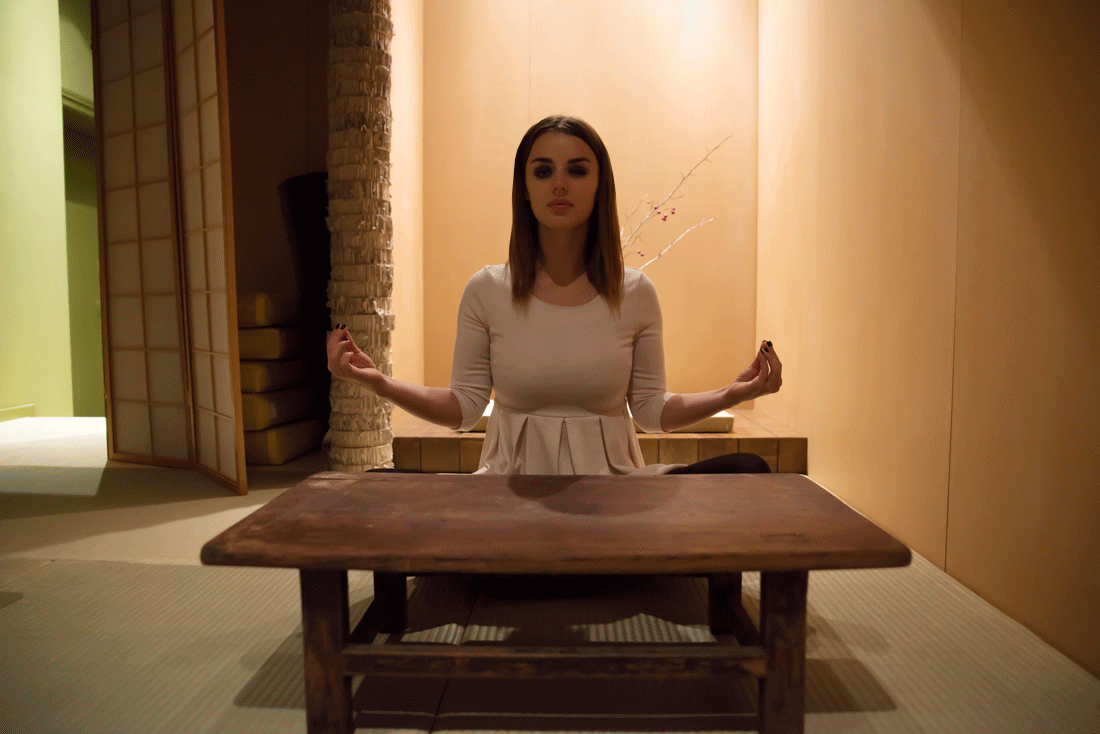Kebony’s most recent venture, macha-macha in Hermannplatz, Berlin, brings a flavour of Japanese tea culture to the heart of Germany. Designed by Carsten Kraemer, the tea room is characterised by intricate attention to detail and adherence to the principles of Feng Shui, creating a space which is relaxing and comfortable. Kebony’s sustainable timber, used for the counter and flooring of the tea house, compliments these principles and lends the room a natural, organic quality that is very much in keeping with the heritage of this cultural tradition.
Kraemer took inspiration for his designs from experimental sculpture and the idea of design communication and a Feng Shui master was later consulted to ensure that the designs conformed to the principals of the ancient tradition. In the centre of the room is a large counter made of Kebony Radiata with a discreet vase filled with flowering branches of wood. The counter and floor tiles are positioned slightly canted so that the guest is visually invited into the room.
Everything shines discreetly in white, brown and green to match the colours of the Macha tea. The entire experience of drinking tea at macha-macha has been designed around sensory gratification and wellbeing. Japanese teas, famed for their health benefits, are consumed in this room wherein the very architecture and interior design instils a sense of calm to all who pass through it.
The material selection for this unique space was also informed by the Japanese principal of Wabi-Sabi; the notion that materials should be allowed to change and that transience and imperfection are an integral part of their aesthetic. It was through this ideology that Kraemer discovered Kebony, which acquires a silver-grey patina over its lifetime under exposure to light and the elements. The use of Kebony’s pioneering Scandinavian technology in this traditional Japanese space lends it a timeless, anachronistic quality which is very much in keeping with the eclectic vibe of Berlin’s Hermannplatz.
The utopic ambience of the room meant that sustainability also had to feature high on the design agenda for the teahouse. Kebony’s strong eco-credentials and environmentally sound technology meant that the wood could be used without compromising the ethicality of the design.
Carsten Kraemer, the designer and visionary behind the teahouse, said “Initially my designs for the building were very spacey and used futuristic materials; the decision to use Kebony emerged subsequently and its warm colour tones and smooth finish really compliment the minimal and natural ambience of the room.”
Adrian Pye, international director at Kebony commented: “We are delighted that Kebony was able to be a part of this exciting and unique project. The fact that this Norwegian timber product can look so great in this traditional Japanese setting at a site in Berlin really highlights the universal, ubiquitous nature of Kebony as a construction material.”
Images courtesy of katberlin.com

